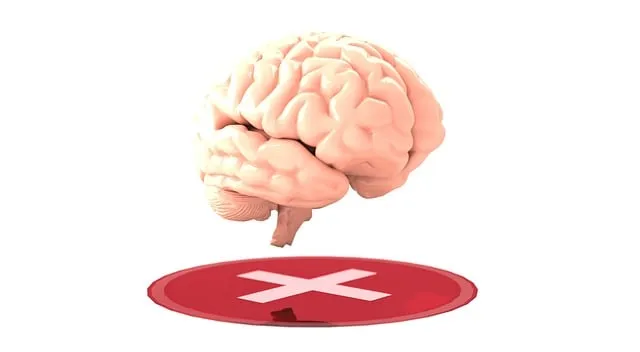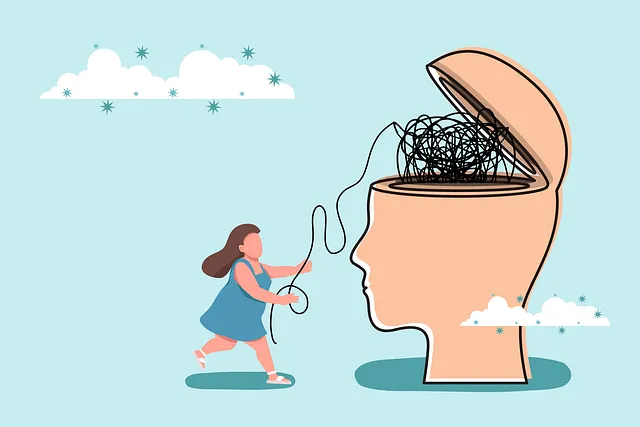At Kaiser Permanente mental health jobs in Westminster, implementing comprehensive mental wellness coaching programs is vital for staff well-being and patient care. These tailored interventions include stress reduction methods, communication strategies, and evidence-based practices like Mind Over Matter, Social Skills Training, and Stress Reduction Techniques. Technology integration through online platforms expands access, while a strategic evaluation approach using KPIs and qualitative feedback ensures program effectiveness and sustainability, enhancing both patient outcomes and healthcare provider mental health.
Mental wellness coaching programs are gaining prominence, especially within healthcare institutions like Kaiser Permanente. This article explores the development of such programs, focusing on a unique initiative in Westminster, where evidence-based practices are integrated into coaching curricula for mental health professionals at Kaiser Permanente. We delve into effective designing, incorporating technology, and evaluation strategies, offering insights tailored to the challenges faced by mental health jobs in this dynamic setting.
- Understanding the Need for Mental Wellness Coaching Programs
- Designing Effective Coaching Curricula for Kaiser Permanente Mental Health Jobs in Westminster
- Incorporating Evidence-Based Practices into Coaching Sessions
- The Role of Technology in Delivering and Scaling Coaching Services
- Measuring Success and Impact: Evaluation Strategies for Mental Wellness Coaching Programs
Understanding the Need for Mental Wellness Coaching Programs

In today’s fast-paced and often stressful healthcare environment, especially in places like Kaiser Permanente mental health jobs Westminster, the need for comprehensive mental wellness coaching programs is more critical than ever. Healthcare professionals, including doctors, nurses, and support staff, face unique challenges that can lead to burnout, stress, and even adverse patient outcomes if unaddressed. Programs focused on mental wellness coaching aim to empower these individuals with the tools and strategies necessary to manage their own mental health while providing top-tier care.
These initiatives go beyond traditional risk management planning for mental health professionals; they offer tailored interventions like anxiety relief techniques and burnout prevention strategies specifically designed to meet the demands of healthcare environments. By investing in such programs, organizations like Kaiser Permanente can foster a culture that prioritizes mental wellness, ensuring their staff remain motivated, engaged, and equipped to handle the emotional rigors of their jobs.
Designing Effective Coaching Curricula for Kaiser Permanente Mental Health Jobs in Westminster

At Kaiser Permanente mental health jobs in Westminster, designing effective coaching curricula is paramount to fostering a supportive and productive environment for professionals. A well-structured program should incorporate evidence-based stress reduction methods tailored to the unique challenges faced by mental health workers. By teaching strategies like mindfulness, cognitive-behavioral techniques, and self-care practices, coaches empower employees to manage stress and maintain resilience in their demanding roles.
Moreover, integrating communication strategies is crucial for building strong therapeutic alliances and enhancing patient outcomes. Coaching curricula should emphasize active listening, empathy, and clear, concise communication. Equipping mental health professionals with these skills not only improves their interactions with patients but also contributes to the overall success of public awareness campaigns development aimed at destigmatizing mental illness.
Incorporating Evidence-Based Practices into Coaching Sessions

Incorporating evidence-based practices into coaching sessions is a pivotal aspect of enhancing mental wellness programs, especially when considering positions like Kaiser Permanente mental health jobs in Westminster. These practices, grounded in scientific research, offer effective strategies for addressing various psychological challenges. For instance, Mind Over Matter principles, focusing on reframing negative thoughts and cultivating positive ones, can significantly improve clients’ coping mechanisms. By teaching individuals to manage their minds, coaches facilitate a profound shift in perspective, fostering resilience and emotional well-being.
Furthermore, integrating social skills training and stress reduction methods ensures comprehensive support for clients. Social Skills Training equips individuals with the tools to navigate interpersonal relationships more effectively, thereby reducing social anxiety and improving overall communication. Stress Reduction Methods, on the other hand, provide participants with a toolkit of relaxation techniques, mindfulness exercises, and cognitive strategies to manage stress levels. Combining these evidence-based approaches ensures that coaching sessions are not only engaging but also profoundly impactful in promoting mental wellness.
The Role of Technology in Delivering and Scaling Coaching Services

Technology plays a pivotal role in modern coaching programs, particularly in the delivery and scaling of mental wellness services. Online platforms and digital tools enable coaches to reach a wider audience, including those who may not have access to traditional therapy or counseling services, such as individuals living in remote areas or those with limited mobility. Through video conferencing, chat apps, and mobile applications, coaches at Kaiser Permanente mental health jobs Westminster can provide personalized sessions to clients across different locations. This technology facilitates flexibility and convenience, allowing for more people to benefit from coaching interventions.
Moreover, digital solutions offer scalable and cost-effective ways to deliver Mental Health Education Programs Design. Online modules and interactive workshops can be easily updated and distributed to a large number of participants, ensuring consistent access to valuable knowledge and skills. Additionally, technology supports Risk Management Planning for Mental Health Professionals by providing secure data storage, confidential communication channels, and digital tools for tracking client progress. Incorporating Empathy Building Strategies through role-playing simulations or virtual reality scenarios can also enhance the coaching experience, fostering deeper connections and understanding between coaches and clients in a digital setting.
Measuring Success and Impact: Evaluation Strategies for Mental Wellness Coaching Programs

Evaluating the success and impact of mental wellness coaching programs is a multifaceted process that goes beyond simple satisfaction surveys. It demands a comprehensive strategy that aligns with the program’s goals, such as improving patient outcomes, enhancing healthcare provider well-being, and fostering sustainable behavioral changes. At Kaiser Permanente mental health jobs in Westminster, for instance, coaches often employ a mixed-methods approach, combining quantitative data analysis with qualitative feedback mechanisms.
Quantitative measures may include tracking key performance indicators (KPIs) such as patient adherence to treatment plans, reductions in symptom severity, and improvements in overall mental health quality of life. Qualitatively, regular check-ins, 360-degree feedback from both patients and providers, and the integration of Compassion Cultivation Practices can offer deep insights into the program’s impact on individual experiences. This holistic evaluation approach not only informs Mental Health Policy Analysis and Advocacy efforts but also aids in refining Burnout Prevention Strategies for Healthcare Providers, ensuring the program’s ongoing relevance and effectiveness.
Mental wellness coaching programs, as exemplified by initiatives at Kaiser Permanente mental health jobs in Westminster, are vital tools for improving individual and community well-being. By integrating evidence-based practices and leveraging technology, these programs can be designed and delivered at scale to meet the diverse needs of populations worldwide. Measuring their impact through rigorous evaluation strategies ensures that coaching interventions remain effective and adaptable. This multi-faceted approach not only enhances access to mental health support but also fosters a culture of holistic well-being.






